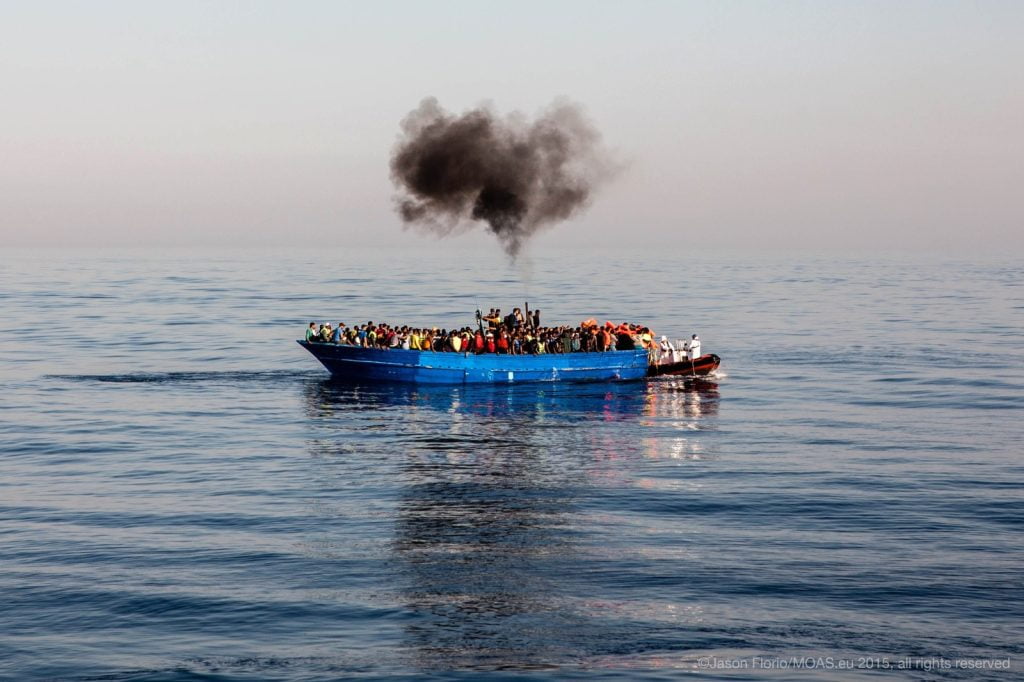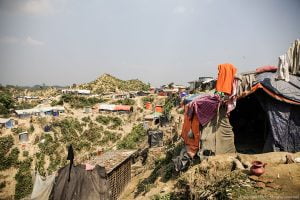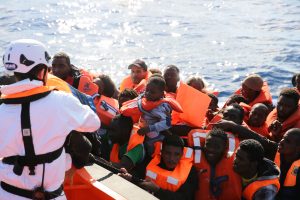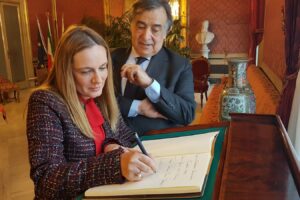
Exactly 10 years have passed since the Lampedusa shipwreck, where on 3 October 2013, 368 people died, a watershed moment establishing a before and an after from which it would never again be possible to return. Although we commemorate this date every year through the establishment of the Italian National Day in Remembrance of the Victims of Immigration, still too many children, women and men continue to lose their lives in the Mediterranean Sea during their desperate attempt to find a better life while fleeing from wars, violence, persecution, human rights violations, poverty and the damage caused by extreme weather phenomena.
The first nine months of 2023 have been significant, in terms of migratory movements in the Mediterranean and the number of people who have lost their lives at sea increases day by day.
Meanwhile in Italy and Europe, politics has resumed talking about migration, with the usual emergency and the invasion rhetoric, aimlessly grasping in the dark, entrenched in nationalism, without seeming to ever reach an effective and shared solution.
Just a few weeks ago, the Italian government issued a decree ruling that people waiting for their asylum requests must pay a financial guarantee of around 5,000 euro, which would allow those from the so-called “safe countries” to avoid detention during the examination period, for a maximum of four weeks.
According to the Decree, the amount, to be paid is to be done either through a “bank guarantee or insurance policy”, the amount is expected to cover accommodation, the money needed for possible repatriation and the minimum necessary means of subsistence.
The decree raises some questions, for which it would be useful to have an answer. How many migrants will be able to afford to pay this amount, especially after spending a substantial amount of their savings along the migration routes utilised to get them to their point of arrival? What will happen if the accelerated procedure is not concluded within the 30 days stipulated by Law 50/2023? Will they still risk ending up in a detention centre for migrants after the allotted time? Is this supposed to reduce the overcrowding of facilities? And is not this way risking the creation of channels for first –and second –class asylum seekers depending on economic availability?
In this confused “mare magnum”, the European Union remains frozen, blocked by the “vetoes” of those states who shows no interest in managing the issue collaboratively, while public opinion becomes increasingly silent and inured. All the while, the voice of the Pontiff rises, who, on the occasion of the 109th World Migrant and Refugee Day 2023 during his trip to Marseille, reminds everyone that “migration is neither an invasion nor an emergency” and that migratory flows are a complex issue that requires the commitment of individual countries and the entire international community. Pope Francis called on the continent’s countries to work together to “ensure, according to the possibilities of each country, a large number of legal and regular entries” because “the solution is not to reject“. Recalling the horrors that take place in Libyan lagers as well as those encountered during the migratory journey itself, he reiterated the importance of saving our brothers and sisters at sea while not being afraid of migration.
The Pope’s words reflect the appeals that I, together with MOAS, have been making for years, namely the urgency of the establishment of an EU search and rescue mission and the adoption of safe and legal routes that would allow safe and controlled access to Europe.
Furthermore, he added an important principle that we too often ignore; the right not to be forced to emigrate.
“Joint efforts are needed […] to ensure that all enjoy the right not to be forced to emigrate, in other words, the chance to live in peace and with dignity in one’s own country. This right has yet to be codified, but it is one of fundamental importance, and its protection must be seen as a shared responsibility on the part of all States with respect to a common good that transcends national borders. Indeed, since the world’s resources are not unlimited, the development of the economically poorer countries depends on the capacity for sharing that we can manage to generate among all countries. Until this right is guaranteed – and here we are speaking of a long process – many people will still have to emigrate in order to seek a better life.”
An important reflection that we all, individuals, states, and the European Union, must treasure in these years where we find ourselves at “a crossroads of civilisation” between “the fraternity that fecundates the human community with goodness” and “indifference, which bloods the Mediterranean”, as Pope Francis emphasised.
We must put into practice the tools and procedures of Safe and Legal Routes so that people who are forced to escape can arrive in Europe without risking their lives, as well as provide concrete aid for those who want to continue living in their own country, wherever possible. I talk about this in the book “Collecting the sea with a teaspoon” with an afterword by Sergio Nazzaro published by Città Nuova.



